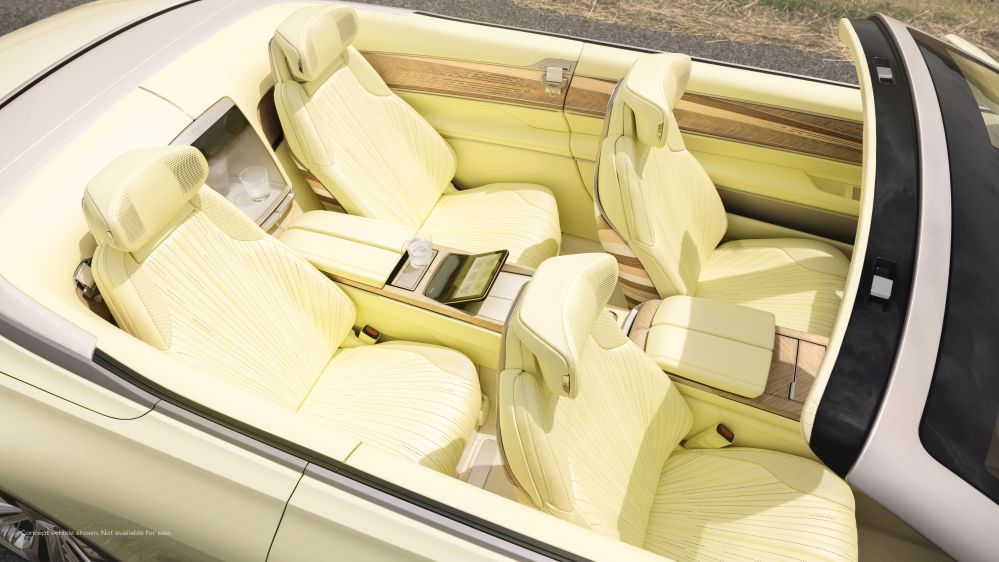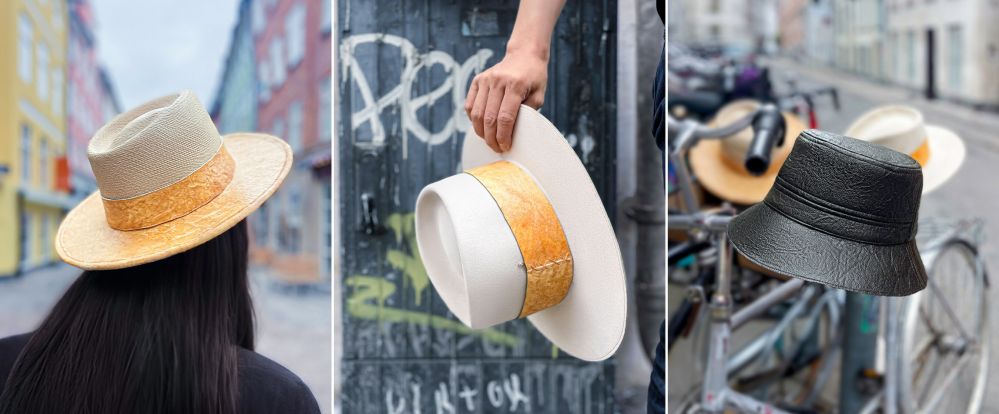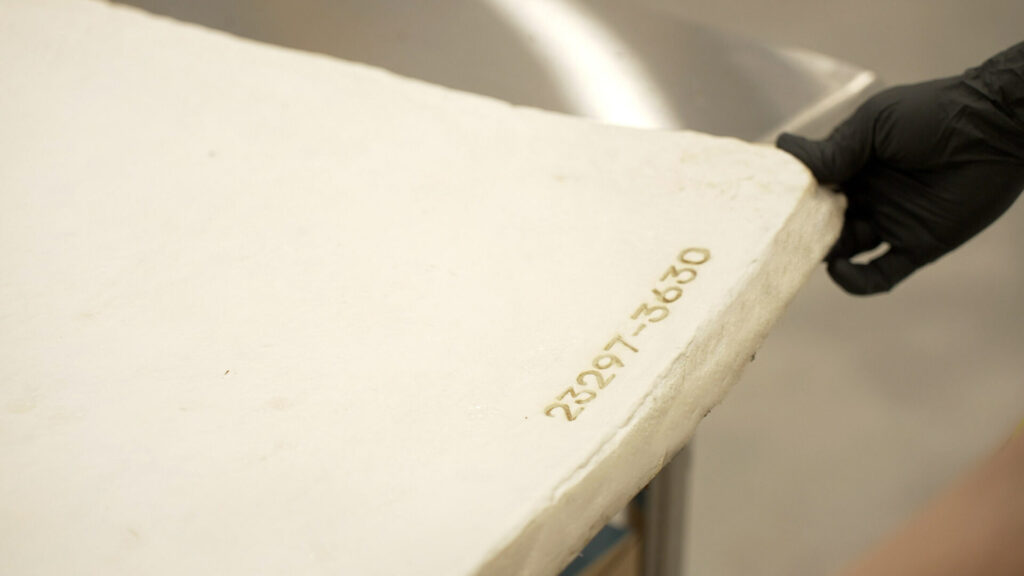[Disclosure: AgFunderNews’ parent co AgFunder is an investor in MycoWorks.]
General Motors has unveiled a concept car—the ‘SOLLEI’ convertible electric vehicle—featuring MycoWorks’ ‘Fine Mycelium’ bio-based materials in the interior.
The luxury convertible includes MycoWorks’ biomaterials in the charging mats on the console, the door map pockets, and custom accessories, says the startup, which secured an undisclosed investment from GM Ventures—General Motors’ venture arm—in August 2022.
As the SOLLEI is a one-off concept car, it will not generate an ongoing revenue stream for MycoWorks but “showcases potential future applications for the new material developed using MycoWorks’ Fine Mycelium technology,” said the firm, which has been working with General Motors via an industrial partnership exploring alternatives to animal leather in car interiors for two years.
The material used in the car interior is distinct from the ‘Reishi’ biomaterial that MycoWorks has developed for other applications such as bags, shoes, clothing and furniture for luxury brands such as Hermès and Ligne Roset, CEO Matt Scullin told AgFunderNews.
“The automotive-grade material is grown, re-tanned, and finished differently, rendering a distinct material from MycoWorks’ flagship biomaterial, Reishi. The material is still under development and the specific properties are proprietary information.”

‘MycoWorks is seeing strong interest from the interiors industry’
He did not share details about the amount of material being produced at MycoWorks’ new plant in Union, South Carolina, but said the firm “is continuously working closely with an ever-growing list of leading brands and designers across many industries both at the level of product applications for existing Fine Mycelium products, and joint R&D partnerships to develop new Fine Mycelium materials.”
He added: “Currently, MycoWorks is seeing strong interest from the interiors industry. Designers and creatives are very interested in Fine Mycelium’s capacity to deliver new levels of control over natural materials; both in the supply of biomaterials, as Fine Mycelium uniquely scalable tray-based technology, but also new levels of control in the customizability of a raw material product, providing numerous avenues for design interventions during the growth and finishing process.
“This enables MycoWorks to provide products and services to a number of industries across numerous applications including fashion, furniture, footwear and automotive design.”
‘Most other options feel synthetic’
As for scaling up production, a significant challenge in the biomaterials space, said Scullin, MycoWorks’ engineers have adapted robotic equipment and systems to handle its tray-based biomaterials process: “MycoWorks is unique in that is has successfully scaled up its process by adding key elements of automation, which is a first in the biomaterials space.”
The material can also be customized for thickness, weight and mechanical properties, allowing for an “unprecedented level of control of a natural material.” He added: “We’re able to engineer the material’s properties for different applications in a way unlike any other company in the industry. What gives us the competitive edge is the fact that MycoWorks’ artistic heritage has enabled us to develop Fine Mycelium materials for quality and haptics. Our materials are well known for their natural handfeel and haptics when most other options feel synthetic.
“This is attractive to our luxury partners across industries who have been searching for options that meet both their quality standards and sustainability goals. All of our Fine Mycelium products are tanned and finished in partnership with some of the best tanneries in the world who are eager to innovate on mastery, craftsmanship and co-develop with us new techniques for tanning Fine Mycelium for specific applications and industries.”
That said, MycoWorks is “constantly seeking out ways to improve and continuously scale its process,” he said. “And while MycoWorks is currently producing product at scale, there are some constraints, including the size of the trays in which the Fine Mycelium is grown. The trays measure, currently, 60 by 90 cm, and this is the standard size of all trays used at the Union facility.”

The growing process
Founded in 2013 by Philip Ross, Sophia Wang, and Eddie Pavlu, MycoWorks raised $17 million in a series A in early 2020 led by DCVC Bio, $45 million in a series B in late 2020 led by DCVC Bio and WTT Investment, $125 million in a series C in early 2022 led by Prime Movers Lab, and an undisclosed sum from General Motors’ corporate venture arm in summer 2022.
Like fellow mycelium company Ecovative, MycoWorks grows mycelium (filamentous fungi) via a solid-state fermentation system in trays containing feedstocks such as recycled sawdust, limestone, and wheat bran. These are then inoculated with MycoWorks’ fungi strains and left to form sheets of foamy looking mycelium that can then be harvested and further treated at tanneries like animal hides.

‘A tray-based process that is unique, reusable, easily replicable, and scalable’
According to Scullin: “The Fine Mycelium process is protected by over 80 patents engineering the way mycelium cells grow and intertwine in a tray-based process that is unique, reusable, easily replicable and scalable. The process begins with blending a mixture of natural ingredients such as recycled sawdust, limestone, and wheat bran to create a substrate – the base layer that feeds the mycelium and allows it to grow.
“MycoWorks’ exclusive strain of mycelium is added to this mixture inside a tray, which initiates the mycelial growth. During the growth stage, the mycelium is left largely to grow without intervention using a passive growth process.
“Fine Mycelium experts occasionally intervene to monitor and finetune the growth, for levers such as consistency and strength, including the option to add other natural textiles like cotton or silk as a backing. Over several weeks, the mycelium grows into a sheet on top of the substrate inside the tray. Once the growth is complete, the fully-grown sheet of Fine Mycelium is harvested. After the process, the substrate ‘brick’ is recycled.”





